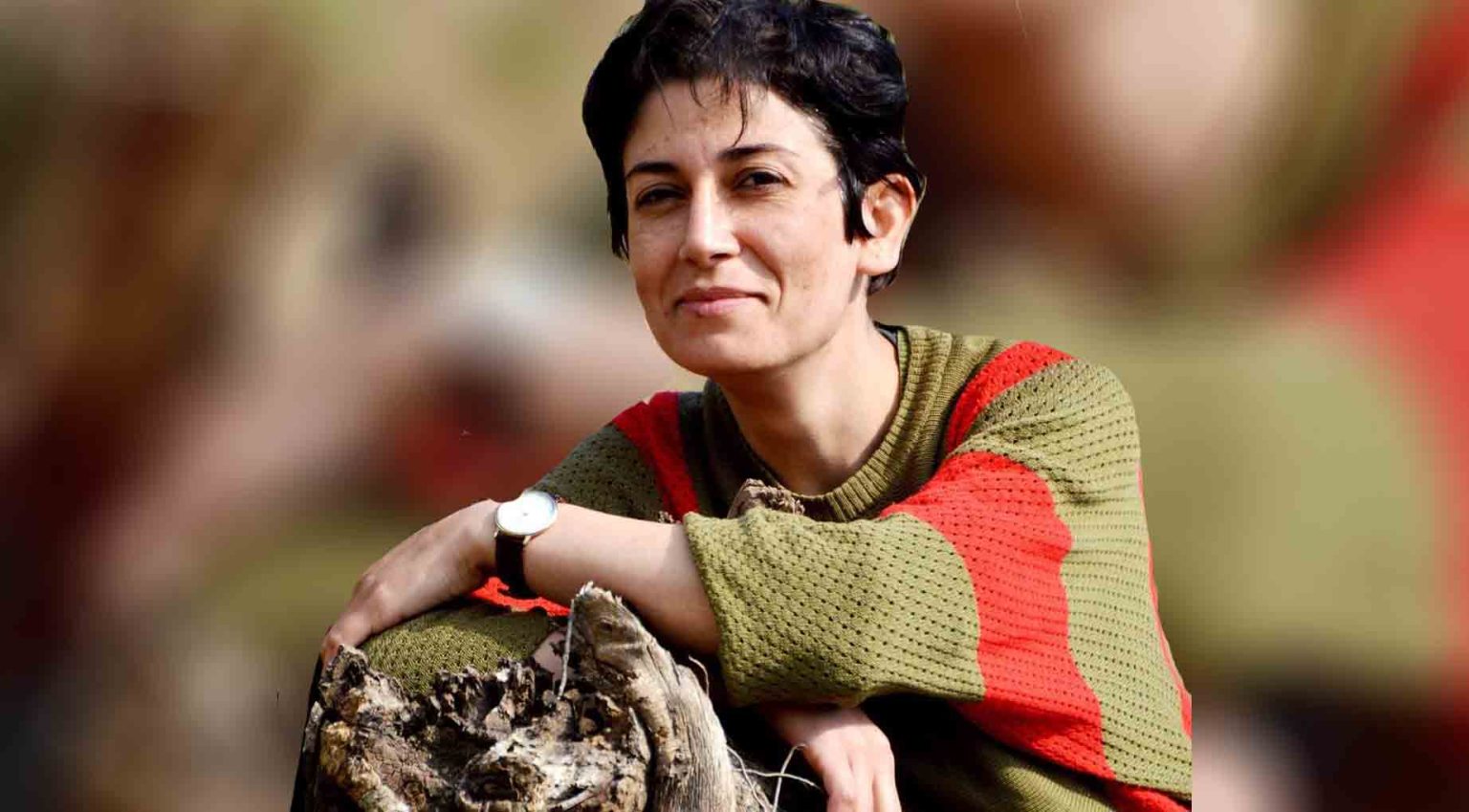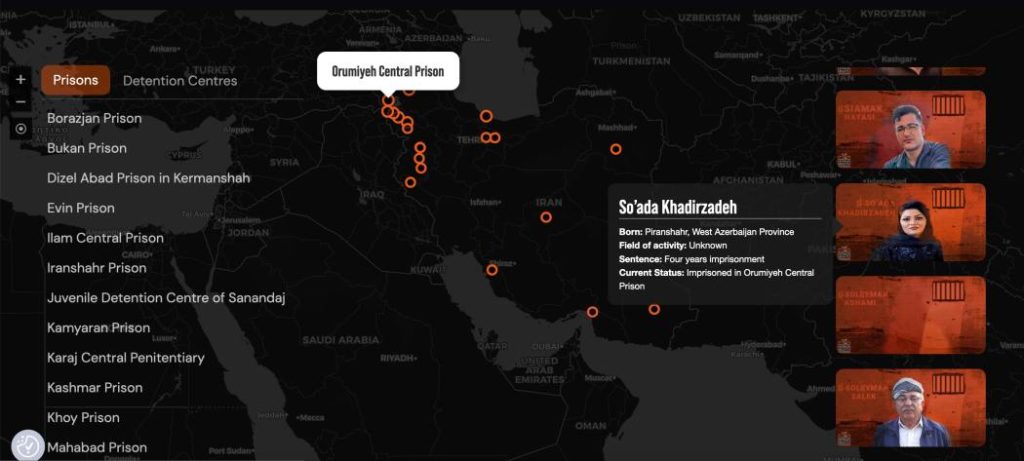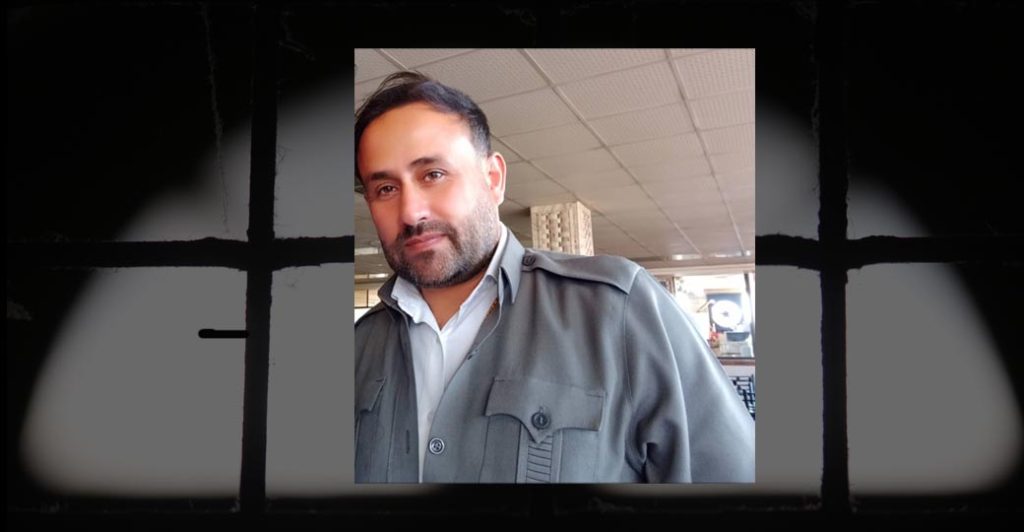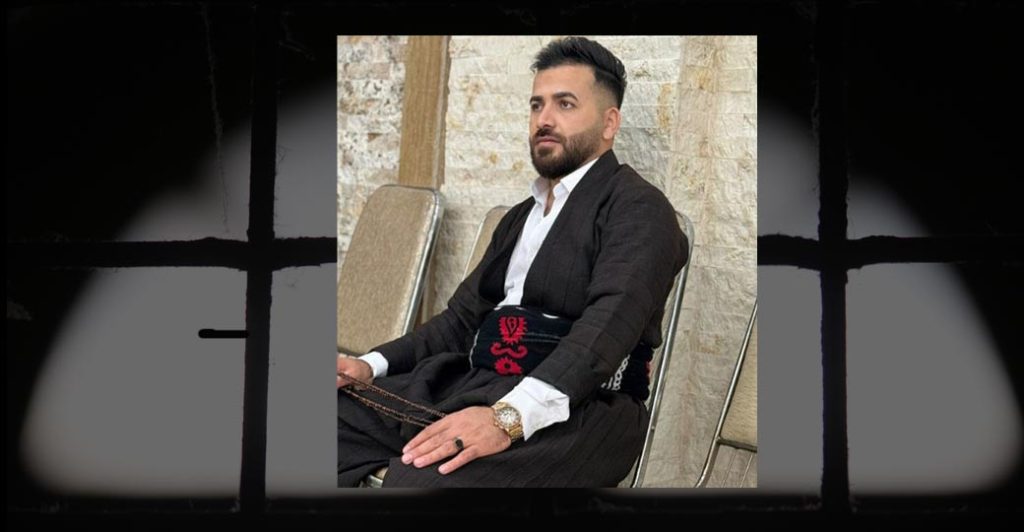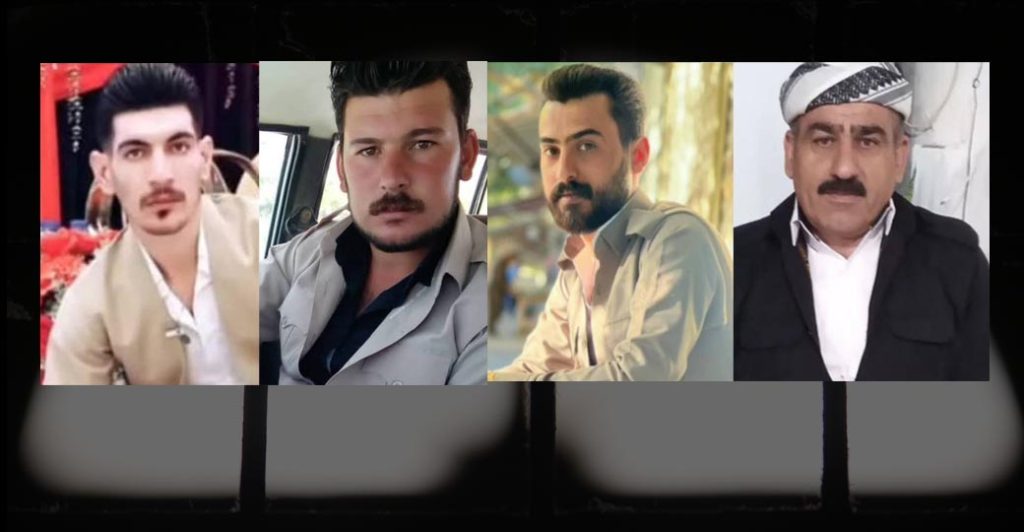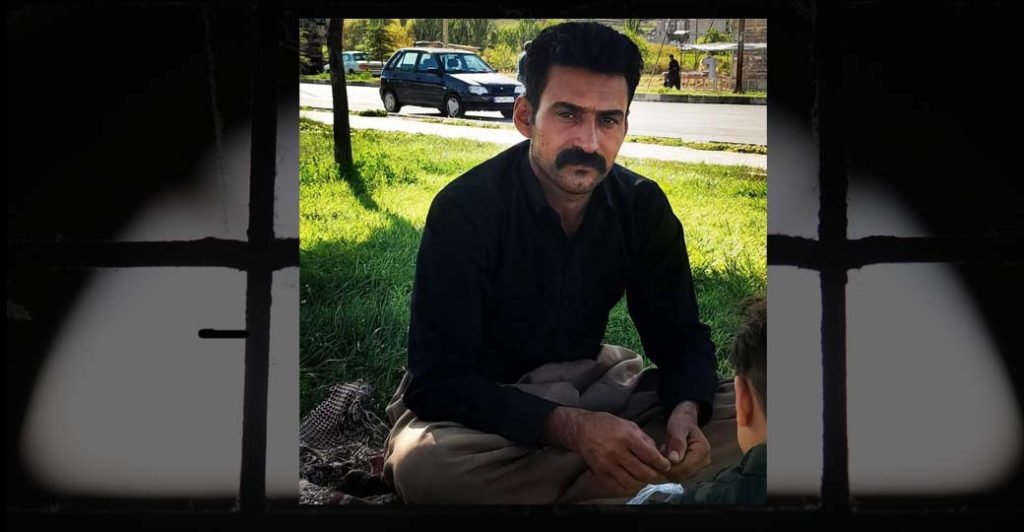Pakhshan Azizi, a Kurdish activist who has been detained for almost a year, has been sentenced to death by the Islamic Revolutionary Court in Tehran on charges of “armed insurrection” (baghi) through membership of the Kurdistan Free Life Party (PJAK).
The Kurdistan Human Rights Network (KHRN) has learned that following the verdict, women political prisoners in Evin Prison staged a sit-in protest in the prison yard for several hours.
Azizi’s lawyers were informed of the verdict on 23 July, which was issued by Branch 26 of the Islamic Revolutionary Court, presided over by Judge Iman Afshari.
At the same time, Azizi’s brother, Aso Azizi, announced on his personal Instagram account that three other family members arrested with his sister had been sentenced to prison.
Azizi was charged with “armed insurrection” (baghi) by Branch Five of the Evin Security Prosecutor’s Office in February, with court sessions held on 28 May and 16 June.
The prisoner was denied access to a lawyer from the time of her arrest until her indictment and transfer to the Islamic Revolutionary Court.
Azizi, a social worker from Mahabad, West Azerbaijan Province, and a graduate of Allameh Tabataba’i University in Tehran, was arrested by the Ministry of Intelligence in Tehran on 4 August 2023 and taken to Ward 209 of Evin Prison.
Several of her family members were also arrested at the same time, but released after several days of interrogation.
During her detention, Azizi was denied family visits and legal representation, and was subjected to torture to extract forced confessions.
On 11 December 2023, she was transferred from Ward 209 to the women’s ward of Evin Prison.
Since 6 July, Azizi has been denied visits or contact with her family by the prison’s disciplinary council.
She recently wrote a letter from prison detailing her harsh arrest, severe torture in detention, five months in solitary confinement and her struggles as a Kurdish woman.
Azizi has a history of prior arrests by the security forces. She was first arrested on 16 November 2009 during a gathering of Kurdish students at Tehran University to protest against politically motivated executions in Kurdistan, and was released on bail after four months and later left Iran, living in the Kurdistan Region of Iraq in recent years.
During the Islamic State (IS) attack on Rojava (Syrian Kurdistan), she worked as a social worker to help refugees in the region.
Azizi’s death sentence coincides with the case of another Kurdish activist, Verisheh Moradi, a member of the East Kurdistan Free Women Society (KJAR), who is awaiting sentencing on similar charges following her arrest in Sanandaj, Kurdistan Province.

